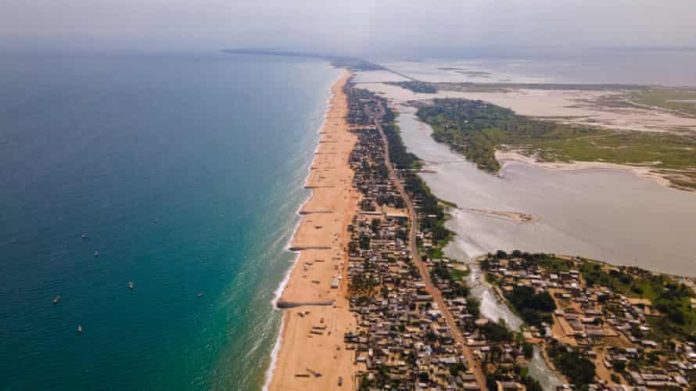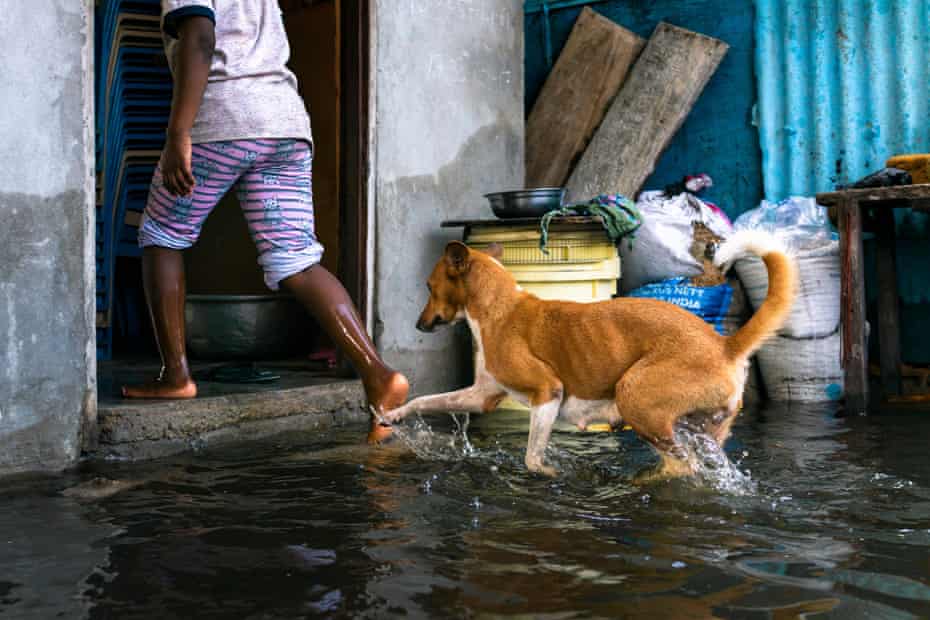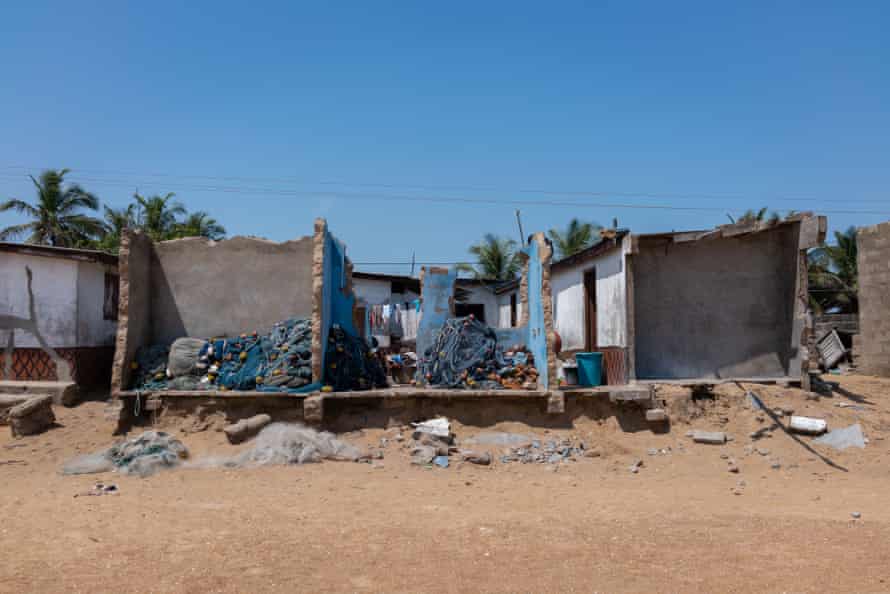As the sea claims more of the west African shoreline, those left homeless by floods are losing hope that the government will act
Waves have taken the landscape John Afedzie knew so well. “The waters came closer in the last few months, but now they have destroyed parts of schools and homes. The waves have taken the whole of the village. One needs to use a boat to commute now because of the rising sea levels,” he says.
Afedzie lives in Keta, one of Ghana’s coastal towns, where a month ago high tide brought seawater flooding into 1,027 houses, according to the government, leaving him among about 3,000 people made homeless overnight.
Keta has been slowly eroded by rising sea levels and storms for years. But before dawn on 7 November, people woke to walls of seawater surging through their properties, flooding homes, schools, businesses and churches.
That morning Keta, and neighbouring Fuveme and Salakope joined Vodza, Adzido, Abutiakope and Kedzikope – villages and towns that once dotted the west African country’s shore but have all but disappeared under water.
“It started Saturday evening. We saw that the water was getting closer, but we didn’t know it would flood this place. By Sunday at dawn, the water was everywhere. All our things were affected by the flood,” says Janet Nubueke, from Keta.
The people, she says, will continue to move away from the water as long as the sea continues to be a threat. They are asking the government to relocate them.
With a coastline spanning about 340 miles (550km) of the Gulf of Guinea and a quarter of its population living on the coast, Ghana is being permanently altered by coastal erosion. The country’s economic powerhouse is along the coast, including 80% of its industry, oil and gas production, thermal and hydroelectric power generation, as well as agriculture and fishing. A study by Unesco found that 37% of Ghana’s coastal land had been badly hit by erosion and flooding between 2005 and 2017.
Construction of a sea-defence wall began in 1999 under the administration of the late President Jerry Rawlings but was not completed because of a change in government and subsequent neglect by political leaders.
Several studies suggest that sea-defence walls could play an essential role in mitigating the erosion of sandy soil along the coast and that stabilising the shoreline to prevent inhabited areas being flooded is feasible. But many people, still living in makeshift shelters and waiting to find new homes, have no confidence that the political will is there to complete the project.
With climate crisis experts warning that extreme weather and natural disasters will only become more frequent, the people left in what remains of Keta are living from day to day, fearing the next storm or higher than usual tide.
Source : The Guardian




